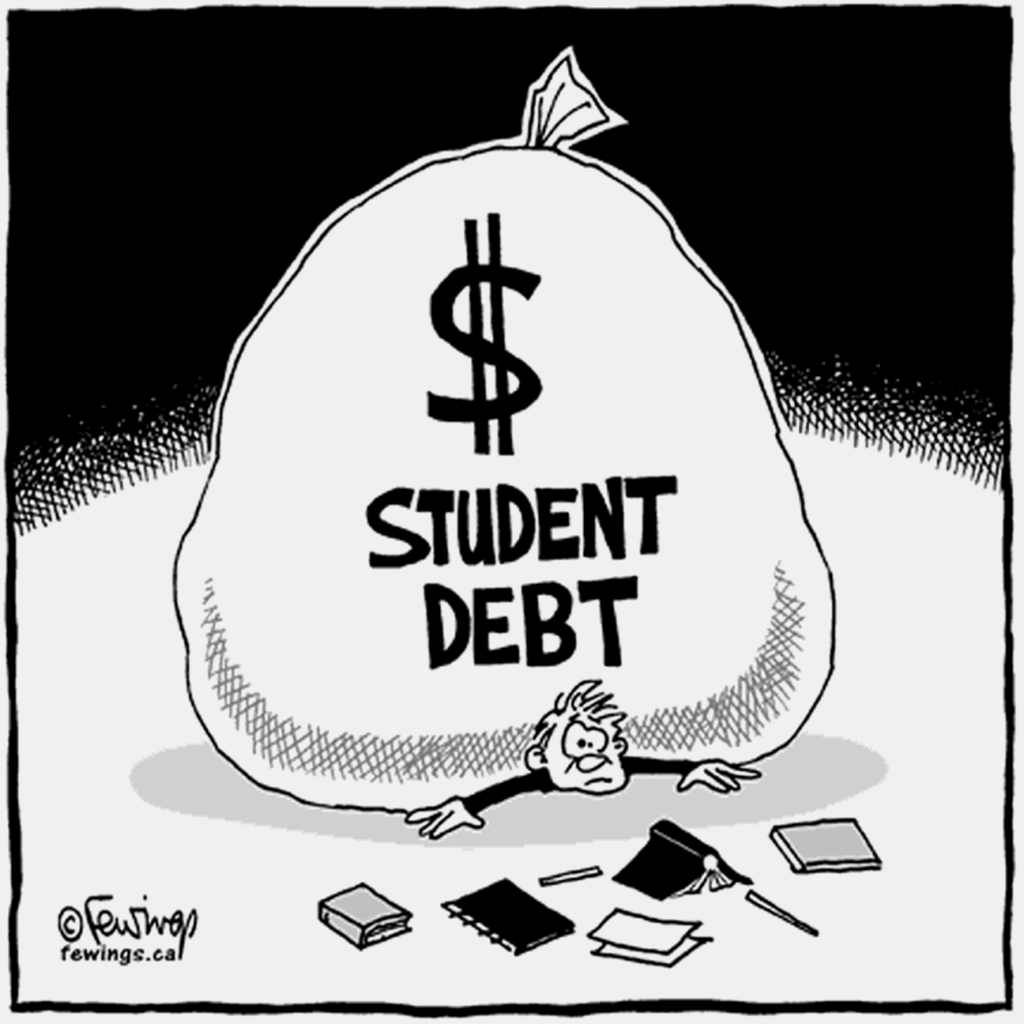In its September 14, 2019 edition, the Wall Street Journal published a multi-page expose on the financial situation of people in their 20’s. The Journal described the lives of several people from various places in the US and discussed what issues they have and what might be preventing them from getting to where they want to be.

Student Loans Are a Drag
If you didn’t read the expose, I can sum up its findings for you: Having student loans can put a real drag on one’s finances. Student debt causes people to stay in jobs they don’t like because they need to pay the bills. People are reluctant to buy cars and homes because they don’t have enough money remaining to do so after paying off student loans. Savings rates are low because it is hard to save if one is making student loan payments. People feel forced to go into credit card debt because they feel they don’t have enough to live on after paying student loans. The Journal uses the word “crushing”, and I believe that accurately describes student debt.
Changes in Thinking
I believe there are a couple of notions that must change going forward:
- Student loans are not “good” debt. Getting an education and earning a degree are great goals, but it is not great to go into debt to do so because it restricts one’s flexibility. Debt may work to impose discipline if lack of discipline is an issue, but I don’t know that the concept of discipline resonates with the teenage college student who is thinking about taking out more student debt. Student debt is unsecured debt, meaning there is no collateral, so there is no asset that the debtholder could conceivably sell in order to pay off the debt. Instead, paying off student debt is a long, hard slog.
- As a society, we need to become more accepting of kids who decide to pursue alternatives to an education that would necessitate them going into debt. Going the community college route, or taking online classes, or getting certificates or accreditations from trade schools make much more sense than being burdened for years with college debt.
Don’t Allow Your Kids To Go Into Debt
My advice here is aimed more at parents than it is at debtholders, who are just kids: Don’t allow your kids to go into major student debt just because you want them to go to a prestigious college or because they want to keep pace with their friends. Instead, work with them to look for alternatives that still can open doors for them while keeping them out of debt so they can do what they want when they complete their education.
IMO
Avoiding student debt is an excellent early lesson one can learn and live by. John might be envious of Bill’s expensive private college education while John is going to community college, but Bill will likely be envious of John when John graduates from State College U debt-free while Bill graduates with $70,000 of student debt. It might be a hard sell for young people at the time, but the future rewards for student debt avoidance are high.
